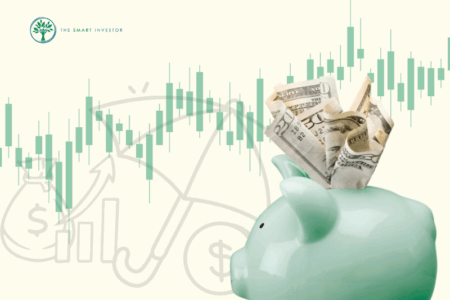Thai Beverage Public Company Limited (ThaiBev) (SGX: Y92) is one of Southeast Asia’s leading beverage companies and the largest in Thailand.
Known for its famous Chang Beer, ThaiBev produces and distributes liquor and non-alcoholic beverages.
While ThaiBev operates mainly in Thailand, the beverage distributor is active across Southeast Asia (SEA).
Its international arm, InterBev, is one the largest shareholders of one of Singapore’s most successful food and beverage companies, Fraser and Neave Ltd (F&N) (SGX: F99), with a shareholding of 28.3%.
Apart from Singapore, ThaiBev has set its sights on other countries across SEA such as Vietnam and Myanmar.
As a result, ThaiBev is SEA’s largest beer producer in terms of volume.
With a strong regional presence, ThaiBev boasts a current market cap of S$11.2 billion, ranking it among the 30 blue-chip companies listed on the Singapore Exchange (SGX: S68).
However, 2024 has been challenging for ThaiBev.
While the Straits Time Index (^STI) rose modestly by 5.2% year to date, ThaiBev has underperformed the index, falling 17.6% year to date.
Additionally, Thaibev’s shares have reached a 52-week low of S$0.42 in early July.
In fact, the decline began in early 2023 with the share price falling steadily from S$0.69 to the current level.
Despite the persistent fall in ThaiBev’s share price, the beverage giant’s shares may look increasingly like a bargain.
A weak business performance
For fiscal year 2023 (FY2023) ending 30 September 2023, ThaiBev reported THB 286.1 billion in total sales, marking a modest increase of 2.2% year on year.
However, the year showcased several financial challenges.
Firstly, net profit dropped by 10.9% year on year to THB 30.7 billion.
Additionally, earnings before interests, taxes, depreciation and amortisation (EBITDA), also fell by 6.0% year on year to THB 50.9 billion.
Moreover, ThaiBev’s main revenue generator, its beer division, underperformed with sales volumes decreasing by 5.9%, from 2.5 billion litres to 2.4 billion litres.
Margins also narrowed because of higher costs attributed to packaging and raw materials.
Apart from higher margins, macroeconomic factors are weighing down ThaiBev’s financial performance.
Thailand’s economy has slowed down considerably, with a real Gross Domestic Product (GDP) growth of only 1.9% in 2023, the second-worst performing in SEA.
Additionally, the World Bank has reduced Thailand’s GDP growth expectations for 2024 to 2.4%, down from a projected 2.8% back in April.
The weak economic growth is taking its toll on ThaiBev, where alcoholic beverages are seeing weakening demand.
Despite a significant rise in tourist arrivals to Thailand in 2023 which exceeded pre-pandemic levels, domestic citizens are reducing their alcoholic beverage purchases.
A survey conducted in 2023 from Global Data found that two-thirds of Thai consumers have stopped buying alcoholic drinks, citing unaffordability.
The first quarter of fiscal 2024 (1Q FY2024) saw another set of mixed earnings.
Sales revenue declined by 5.9% year on year to THB 76.1 billion.
Most concerning was the performance of the beer segment, which saw sales revenue plummet by 14% year on year.
However, EBITDA performed better than expected, improving by 1.9% year on year, as costs softened and cheaper raw materials became available.
Have we seen the bottom?
At the start of 2024, the Thai government slashed alcohol taxes, which took effect from February 2024.
Domestic alcohol tax has been reduced to zero in a bid to encourage the production and consumption of alcoholic beverages.
Despite unfavourable market conditions for its beer segment, ThaiBev’s spirits division showed strong resilience.
In FY2023, while beer sales slumped, spirit sales grew by a respectable 3.1% year on year.
Impressively, in 1Q FY2024, spirits revenue surpassed beer revenue.
As the spirits division commands higher margins compared to the beer division, this trend is welcomed by investors.
ThaiBev’s result for the second quarter of fiscal year 2024 (2Q FY2024) has displayed several positive signs.
Total sales increased by 6.3% year on year, from THB 67.4 billion to THB 71.6 billion.
Net profit stood at THB 7 billion, a 5% year on year dip from the previous year’s THB 7.4 billion.
However, despite the weaker results, investors should not worry.
2Q FY2024 saw a huge year on year reduction in the share of profit derived from associates and joint ventures, along with increased income tax.
ThaiBev’s operating profit grew by 10.9% year on year, indicating the recovery of the company’s core business.
For the first half of FY2024 (1H FY2024), the company also generated a free cash flow of THB 14.2 billion.
Thailand’s decision to lower tax on alcoholic drinks has also led to higher sales, with beer sales growing at a decent rate of 12.8% year on year to THB 29.9 billion.
Combined with cheaper inputs and operational efficiency, net profit from ThaiBev’s beer division surged by 35.1% year on year to THB 755 million.
The finance ministry has projected that economic growth could reach 3.3% if a stimulus plan is released by the fourth quarter of this year.
This plan, coupled with increased tourism, signals optimism that ThaiBev’s fortunes may be reversing.
A cautious approach
With ThaiBev’s financial recovery appearing promising and its share price trading at a trailing twelve-month price to earning (P/E) ratio of just 10x, valuations appear attractive.
However, as smart investors, we should always be cautious.
Vietnam, a significant revenue source for ThaiBev, is projected for another challenging year macroeconomically with weak consumption and falling exchange rates.
Additionally, the Vietnamese government plans to incrementally raise the consumption tax on alcoholic drinks to 100% by 2030.
These factors could pose threats to ThaiBev’s performance in both the near and long term.
ThaiBev’s balance sheet is another headache.
The group is burdened with debt, with a net interest-bearing debt to EBITDA ratio at 3.16x, slightly higher than the 3.08x recorded a year ago.
These factors suggest that ThaiBev may not see a recovery so soon.
However, efforts in deleveraging are evident.
ThaiBev has made considerable effort to reduce current liabilities, with current liabilities decreasing by 36.3% since the second half of FY2023.
The situation is expected to improve following the group’s initiatives to boost alcoholic beverage consumption amid easing costs.
As a result, ThaiBev should generate better cash flow and be better positioned to cover its interest payments.
Diversifying its business
Apart from alcoholic beverages, ThaiBev also has operations in its non-alcoholic and food businesses.
For 2Q FY2024, both non-alcoholic beverages and food businesses saw revenue increasing year on year, at 8.6% and 4.5% respectively.
ThaiBev is also spearheading the expansion of both divisions.
Notably, ThaiBev’s recent acquisition of Oishi Group in September 2023 displayed its commitment to the food and non-alcoholic beverage sector.
According to Mintel, refreshing drinks is a sub-sector to watch as temperatures in Thailand continue to rise.
Oishi Group’s assortment of refreshing drinks, such as green or sparkling tea, will be in demand in the upcoming years.
ThaiBev also owns multiple cafes and restaurants in its food business.
Apart from independent restaurants and cafes, the company also operates the franchises of KFC and Red Lobster in Thailand.
These additional revenue streams have proven to be valuable, as we have witnessed how ThaiBev’s alcoholic business can be subject to consumer fickleness and government regulations.
The food and beverage giant’s shares may be a bargain now, but investors should not expect any immediate relief as the business still faces several challenges.
Looking to start investing? Our beginner’s guide will show you how to make the best buying decision and make fewer mistakes. Click here to download for free now.
Follow us on Facebook and Telegram for the latest investing news and analyses!
Disclosure: Aw Kai Rui does not own any of the stocks mentioned in this article.





